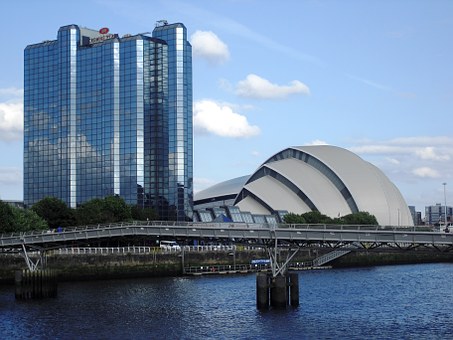Council approves Digital Glasgow Strategy to drive social and economic benefits from the digital revolution

More than 70 actions are to be delivered through a strategy approved by Glasgow councillors which includes a proposed new partnership to deliver investment in digital infrastructure and 5G mobile technology throughout the city.
Also outlined by the authority is the roll-out of more than 50,000 iPads to the city’s schoolchildren; the introduction of more ‘Smart City’ infrastructure such as intelligent street lighting; a commitment to open data; and new work to identify digital technology skills gaps and the future digital skills needs of Glasgow’s economy.
Glasgow City Council said the strategy has two main ambitions relating to how digital technology - itself the fastest-growing sector in Glasgow’s economy, and one which underpins many jobs in other sectors - can benefit the city’s residents, businesses and organisations:
- Maximising the contribution that digital technology can make in achieving inclusive economic growth that benefits everyone in Glasgow and establishes the city’s tech sector as a top 20 global digital economy; and
- Ensuring digital technology plays a transformative and innovative role in how future public services are delivered.
A number of key actions from the Digital Glasgow Strategy - which has been developed collaboratively with a wide range of partner organisations from the public, private, third and academic sectors - will be delivered with the aim of making Glasgow a leader in both the digital economy and digital public services, the authority said.
The strategy identifies a number of new actions to be taken forward by the council and its partners, including a proposed new partnership to deliver investment in digital infrastructure and 5G mobile technology; collaboration across the public, private and third sector to improve digital inclusion and participation; new work to identify digital technology skills gaps and the future digital skills needs of Glasgow’s economy; better promotion of digital careers and the development of digital clubs for young adults; a commitment to open data; and the development of a ‘Smart City Challenge’ to stimulate collaboration and innovation with businesses.
Also among the strategy’s 74 actions are those reflecting existing activity in the city, including the roll-out of more than 50,000 iPads to the city’s schoolchildren and upgrades to school Wi-Fi; the introduction of more ‘Smart City’ infrastructure such as intelligent street lighting; a programme of work to make more council services accessible online; investment in digital inclusion to support people through the roll-out of Universal Credit; and the development of a 3D strategy to develop 3D building models to support planning and regeneration in Glasgow.
Councillor Angus Millar, depute city convener for economic growth at Glasgow City Council, said: “We are living in a time of huge and accelerating technological change, and we need to ensure that Glasgow is ready to embrace the opportunities and meet the challenges that the Digital Revolution will bring for our economy and the future of our public services. While Glasgow is already recognised as an innovative smart city with a strong and diverse digital tech sector, the Digital Glasgow Strategy and the partnership working across the city that it underpins will help us take the next steps in becoming a digital global leader - and it will guide the city in taking advantage of the opportunities digital technology offers to improve our public services and create inclusive economic growth that people across Glasgow can benefit from.”
Glasgow’s digital tech sector is the largest in Scotland, and the city has achieved global recognition as a leading smart city with notable innovations in data analytics and big data. In 2013, Glasgow won a £24 million award - beating 30 other UK cities - to develop Future City Demonstrator programmes in areas such as smart infrastructure and smart energy that have acted as a catalyst for the digital transformation of public services and in turn attracting further investment in smart city innovation.
Glasgow is also home to two Innovation Districts - one in the city centre and one in the West End - and the Centre for Civic Innovation, based at the Tontine.
Glasgow Chamber of Commerce deputy chief executive Richard Muir, said: “We welcome the report as a thoughtful contribution to the policy and investment required to improve both Glasgow’s transport system and our city centre, drive footfall and increase job opportunities.
“We recognise the emphasis on the improvement of the bus offering as, at a time of skills shortages, it is important that people can get to work easily and swiftly from every part of the city.
“We support the request for the acceleration of the Avenues project, which should certainly improve the city centre pedestrian experience and, given the challenge of online retail and out of town shopping, we welcome the acknowledgement of the need for an even playing field in the tax treatment of the city centre.
“Most of all we welcome the report’s findings that no case has been made for a congestion charge and, whilst the power for the introduction of additional non-residential parking charges would be devolved to the local authority, there is no assumption that the case has been made for their introduction either.”






